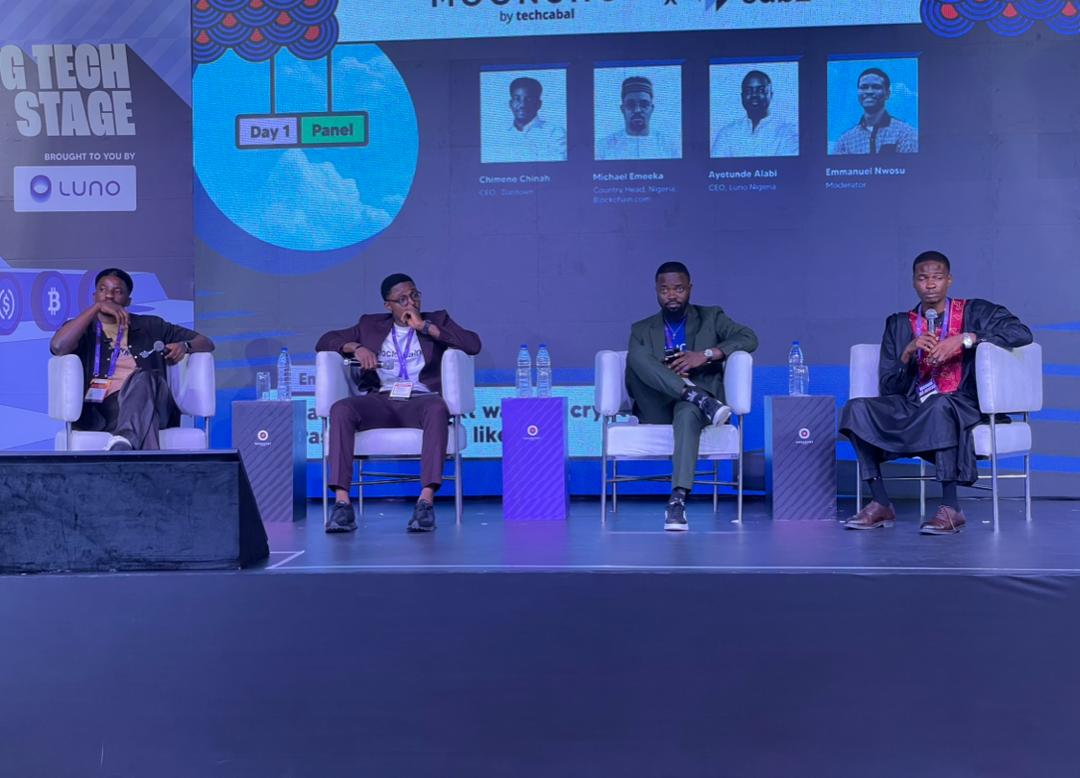Cryptocurrency in Africa is undergoing a profound structural evolution, pivoting from decentralised, organic adoption toward formal, institutionally-backed infrastructure.
That was the takeaway from the “What does the next wave of crypto infrastructure look like?” panel at Moonshot by on Wednesday, October 15.
Nations like Nigeria and Kenya consistently rank among African leaders in crypto usage, necessitating a shift from market survival to regulatory maturity. This essential transition, which defines the next wave of crypto infrastructure, rests upon three critical pillars: establishing regulatory clarity, driving accessible product innovation, and securing user data through advanced privacy protocols.
Despite the continent’s undeniable enthusiasm for digital assets, the path to mainstream acceptance remains complicated by regulatory ambiguities.
Michael Emeeka, Country Head, Nigeria, Blockchain.com, acknowledged the positive development of licenses issued in countries like Nigeria and South Africa but noted that a major challenge remains. “We still have some uncertainties around the revolution,” he said.
Emeeka’s proposed solution is a collaborative one, urging regulators and industry players to “come to the mountain together to understand crypto transactions [and how to build] better policies around it.” Emeeka stressed that regulatory inclusion must be paired with user empowerment, emphasising the need for “physical education” to help the continent’s vast young population utilise digital assets safely and responsibly.
The growing regulatory framework provides the necessary foundation for the second pillar: product innovation designed for mass accessibility.
Ayotunde Alabi, CEO of Luno, highlighted tokenised US stocks as a prime example of an infrastructural advance driven by genuine “user demand for these innovative crypto products.”
Tokenisation effectively eliminates the geographic and temporal limitations of traditional finance, offering users fractional ownership and 24/7 trading access. Alabi pointed out the advantage of the product: “You can buy stocks [at] midnight, but you can’t do that in a traditional market.” This strategy is focused on inclusive growth, explicitly trying to “onboard everybody, saying whether you know about crypto or not, come use tokenised stocks,” thus leveraging crypto infrastructure to democratise access to global wealth creation.
As the industry professionalises and collects more sensitive user data, the infrastructure of trust and privacy must be secured.
Chimene Chinah, CEO, Dantown, addressed the consumer fear surrounding identity and compliance requirements: “In terms of identity and KYC and KYD, people are a bit scared” of data breaches.
Chinah also identified the technological solution in cutting-edge cryptography: “I think zero knowledge protocols for KYC and KYD will also change lots of things.” Zero-Knowledge Proofs (ZKPs) allow regulated entities to verify that a user meets compliance criteria (such as age or residency) without ever requiring the user to expose their personal, identifying information. By minimising the amount of sensitive data held by centralised platforms, ZKPs offer a pivotal layer of privacy-preserving infrastructure essential for long-term consumer confidence.









